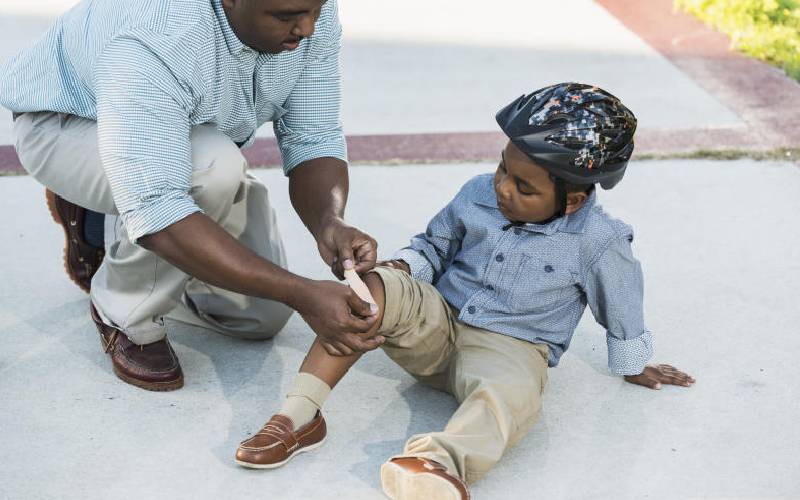
A father puts an adhesive bandage on the knee of his 5-year-old boy. [Getty Images]
Parenting is one of the most complicated jobs on earth. Whatever you do as a parent will impact your children’s lives, and this moulds them into who they will become in future. Regardless of what your parenting style is, there are certain habits that can either nurture or break your child’s self-esteem. Children who have strong self-confidence have a better chance of being happy adults, which also reduces the likelihood of low self-esteem issues. On the opposite side of that are children who feel the negative impact of their parent’s parenting. These self-esteem issues are not easy to get rid of, especially if they were rooted in childhood.